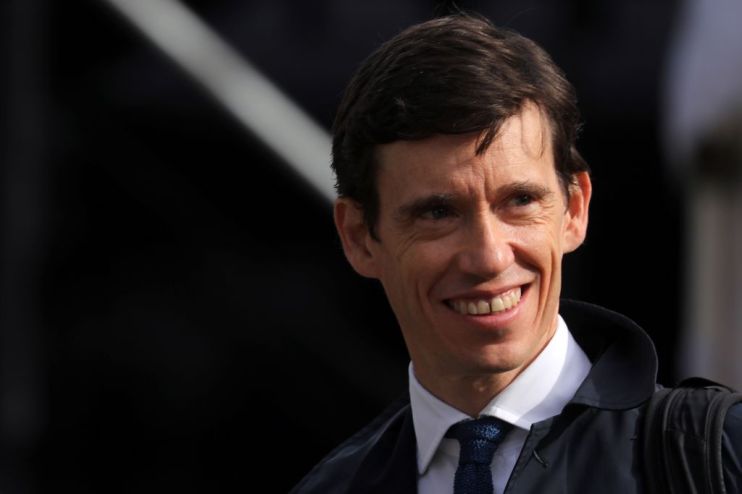Rory Stewart: We need less politics and more action to tackle terrorism

Speaking to a man in Streatham who’d cradled a bleeding victim after Sunday’s terrorist attack reminded me of many places far away.
I remembered the attack on my compound in southern Iraq, the screams and wreckage of bombs in Baghdad and Kabul, my friend Haider who was killed by terrorists, because he worked for me — and the young Afghan man I knew who became a suicide bomber.
This attack may have happened on the peaceful Streatham High Road but it was born from a horrifying global monster that I have been tracing from my earliest days as a British diplomat 25 years ago, right through my time in Iraq and Afghanistan to my last position as a secretary of state and member of the National Security Council.
We owe the officer who shot the terrorist in Streatham a huge debt of gratitude for his quick thinking and courage. And we owe so much to the security, police, prison and probation officers who have ensured that we have been saved from so many attacks over the last few years. But I sometimes wonder how much we have really learned.
Since the attack, I have heard politicians from the left imply that terrorism can be fought through tackling root causes such as poverty, and politicians from the right implying that they can solve it simply with more ferocious punishment.
Both are wrong. When I did a detailed study of recruitment into the so-called Islamic State (Isis), I discovered that terrorists came from almost every conceivable background — from Scandinavian professionals and British GPs to Tunisian farmers — so you can’t end it through poverty programmes alone.
But equally you can’t eliminate terrorism just through ferocity. In Afghanistan we were told there were only 4000 Taliban fighters. We killed 5000, and there still seemed to be a lot left. To become safer in the future, we must forget partisan politics and grip four things: intelligence, rehabilitation, control and response.
First, all good counter terrorism starts with good intelligence. As mayor I would triple the number of uniformed police on the streets of London — bobbies on the beat. Their local knowledge and relationships are the vital first line in picking up signs of radicalisation.
I would recruit more experts who have a deep knowledge of radical Islam, of communities, and of the way in which today’s terrorists are different to those of 10 years ago. And I would encourage the public to be much more vigilant.
Second, whether we like it or not, most criminals come out of prison sooner or later. Even if the Streatham terrorist had served his full sentence — in prison — he would have been released next year.
And as I learned as prisons minister, we can do much better at working with people when they’re in prison. I was impressed by the quality of the terrorist separation centre I visited at Belmarsh — which keeps extremist inmates away from those who they would seek to influence — but we do not have enough of these centres and we are not making full use of them.
I found far too many gaps between our police, prison and probation databases, which hamper our understanding of criminals and the risks that they pose. We must link that data.
I invested in training for prison imams to combat radicalisation, and I encouraged more researchers on Islam into prisons. But we need to train far more prison and probation officers in how to work with terrorist offenders.
We need to assign a single specialist case officer to each terrorist — to follow them right through the system, and make sure this information flow continues when they’re released.
Third, we need better monitoring and control when terrorists come out. We must improve risk assessment processes, licence conditions, skills of probation officers, electronic tagging, and curfews.
And finally we need to be able to identify and neutralise terrorists who evade these measures. Much of the expertise lies in London — because London is the UK’s largest and most diverse city, and because the Metropolitan Police is the national lead on counter-terrorism. This means that the mayor — who is the police and crime commissioner for London — has a vital role.
If I were mayor I would bid to take control of probation as well as police in London so that terrorists don’t fall through gaps in the system, and I would increase investment in police armed rapid response terrorist teams. We learned the value of such teams in the Charlie Hebdo terrorist attacks in Paris, and it was the investment in these teams that allowed the police to act so quickly in Streatham on Sunday.
But the most important lesson I have learned in 25 years is not to fight yesterday’s wars. Just because recent attacks have been conducted by lone individuals with simple weapons, doesn’t mean that future ones will be. It is not only states such as Iran and Russia who can sponsor terrorist attacks. The last attack may have been with a knife; the next could be with something much worse.
We will only be able to manage the risk of terrorism through more grip and more imagination; less politics and more action.
Rory Stewart is an independent candidate for London mayor and a former international development secretary